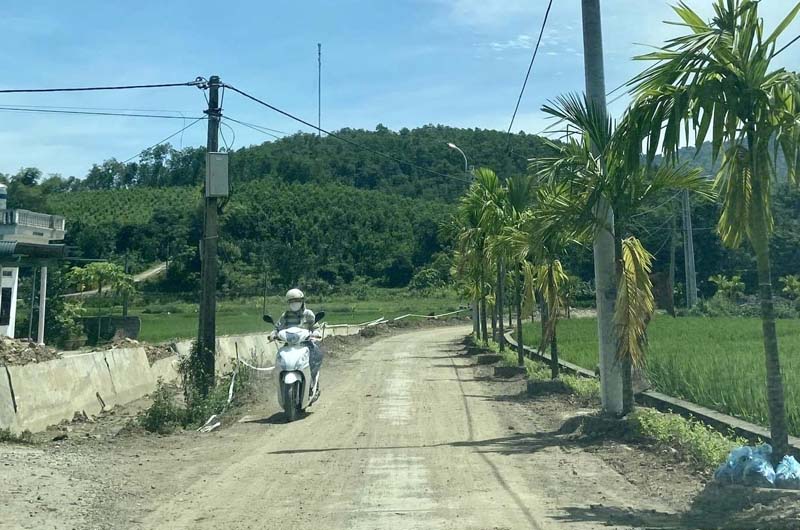
(HBO) - Moi Mit hamlet in Yen Mong commune, Hoa Binh province, was selected as the "village of culture and national defence” model in 2016, which has created important momentum for the locality to move forward and given a facelift to the hamlet.

All of the major
roads and routes in the hamlet have been cemented, facilitating travel of local
residents.
Over
the past seven years, the model has proven effective. Local authorities,
especially the military sector, have helped people in economic development,
environmental protection and cultural life building.
Ha
Ngoc Huyen, head of Moi Mit, said Hoa Binh city’s Military Command has
coordinated with departments, agencies and organisations to help the hamlet
build 300m of cemented road and 110m of canals, and repair and upgrade the
local cultural house and houses for two families in difficult circumstances.
They
have also mobilised more than 1,200 working days and over 300 million VND for
the construction of the hamlet gate, he said.
Competent
agencies have also popularised laws and provided consultations in agriculture
and forestry for local residents, contributing to the formation of successful
economic models in the locality.
The
communal military command and militiamen have played an important role in
helping local residents deal with consequences of natural disasters.
Moi
Mit has also stepped up the campaign on building the cultural life, as
reflected through the establishment of art clubs and the development of sports,
particularly volleyball.
At
the same time, the locality has preserved its traditional culture and customs. More
than 90 percent of local households have been recognised as cultural
families./.
Hoa Binh province is undergoing a dynamic transformation amid Vietnam’s national digital transition. Building on Poliburo’s Resolution No. 57-NQ/TW on breakthroughs in science, technology, innovation, and national digital transformation, the province has rolled out a wide range of practical action plans. A standout initiative is the "Digital Literacy for All” movement, an effort to ensure that no one is left behind in the digital era.
Hoa Binh province is undergoing a dynamic transformation in the wake of the national digital transformation movement. Building on Resolution No. 57-NQ/TW of the Politburo on breakthroughs in science, technology, innovation, and national digital transformation, the province has implemented a wide range of practical action plans. A standout initiative is the "Digital Literacy for All” movement ambitious effort to ensure that no one is left behind in the digital age.
With a spirit of unity and proactive problem-solving, the Party Committee, the government and the people of Dong Lai Commune (Tan Lac District) have made great strides in implementing the resolutions of the 24th Party Congress of the commune for the 2020 - 2025 term. Focusing on leadership and practical actions, the commune has brought the Party’s resolutions into daily life, creating strong impacts and pushing the local development forward.
Amid the nationwide push for digital transformation, young people in Hoa Binh Province are stepping up as dynamic pioneers, applying technology to enhance Youth Union operations and expand the reach of youth-led initiatives. Through creativity and adaptability, Youth Union organizations at all levels have introduced a series of practical solutions, contributing to modern governance and community development.
In recent years, An Nghia commune, located in Lac Son district, has stepped up administrative reform, focusing on improving the quality and efficiency of its single-window service unit for receiving and processing administrative procedures. These improvements have helped create favourable conditions for local residents and organisations to handle administrative procedures, contributing to the commune’s broader socio-economic development.
The Prime Minister-approved master plan to develop the multi-use value of forests ecosystems through 2030, with a vision to 2050, aims to improve the management and sustainable use of forest resources, create jobs, increase incomes, and improve the living standards of ethnic minorities, people in mountainous and remote areas, forest workers and those living near forests.



